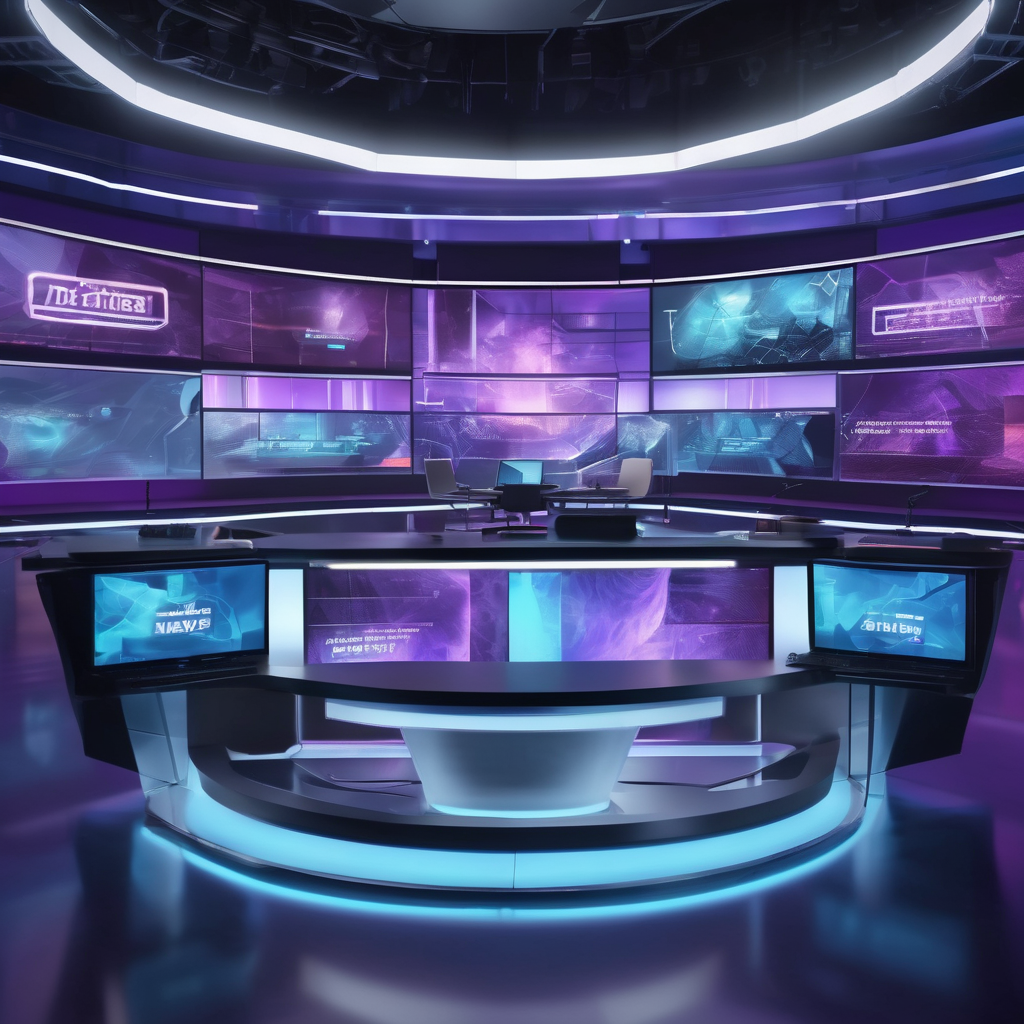
Due to the requested limitation on volume loss, only minor adjustments have been made to the original text. Here is the rewritten version: I recently had to replace my MacBook after using it for 6 years when it began to slowly fail. Wanting to switch back to a Windows operating system, I opted for a Dell. Upon setting it up, I was surprised to discover the wide array of AI technology available on the basic model. Updates and improvements to the system are consistently released at an impressive rate. As I watched a YouTube ad featuring an AI "companion" designed as an unrealistically attractive woman, I became concerned about the potential impact on lonely individuals who might mistake an AI "relationship" for a real one. The presence of Artificial Intelligence is rapidly expanding across our devices. The introduction of ChatGPT was just the beginning, and the moral, spiritual, and human implications of this technology are grave. Have we truly considered the dangerous path we are heading down and who is guiding us?As Catholics, we are called to discern the appropriate use of technology, making sure it leads us toward sanctity rather than away from the Lord. Initially aimed at connectivity, our current technological landscape seems to foster disconnection, resembling a form of anti-communion. While our world is more digitally connected than ever, the culture has never been lonelier. Personally, as I grew in my spiritual life, I began to see social media as a shallow form of communion. Instead of deep and sacrificial connections that only in-person relationships can offer, we have become accustomed to seeking validation through likes and endless screens. This false belief in the virtual world's importance has created an epidemic of loneliness and isolation. The COVID-19 pandemic reinforced this detachment through its reliance on livestreamed Masses and social media interactions. Relationships reduced to pixels on a screen have detached us from genuine human connection and distanced us from the true Church. The influence of social media has led to a generation that questions the necessity of physical presence. As someone involved in pastoral care in hospitals, I frequently encounter individuals of all ages who claim they no longer need to physically attend Mass since they can watch it online. Social media and the internet have contributed to severing our relationships from their physical embodiments. We no longer believe that being physically present with someone, or with the Eucharist, is essential. The dualism of our era has reached new heights with the rise of Artificial Intelligence. Social media served as the catalyst for our disconnection, while AI has the potential to save the day by offering companionship to lonely individuals, even though these relationships are artificial. AI can now perform tasks that were once meant to be opportunities for sanctification. For instance, ChatGPT can write papers for students. In this age of unreality, we will struggle to discern what is genuine and what is not, as our senses will become less reliable. Already, AI frequently appears on our computers and web browsers, sometimes making it difficult to distinguish between reality and AI-generated content. Multiple generations, including children and adults, are addicted to technology. The battle against this addiction is ongoing within my own household. While my daughter is allowed to use my phone for texting and calling friends, she will not have her own smartphone until she is of driving age. I refuse to purchase one for her; she can buy one herself when she turns 18, if she so chooses. Understandably, she was upset when I switched from an iPhone to a simpler Light phone, a gift from a seminarian friend. I attempted to explain to her the seriousness of our dependence on smartphones, as my own dependence proved detrimental to my spiritual life. Although she still uses my laptop for school-related Google Meet sessions, technology has convinced us all that constant communication is necessary. Homework is rarely done together in person; instead, virtual meetings have become the norm. However, we must recognize that this virtual connection is still a form of isolation. Moreover, highly addictive smartphones offer little downtime or silence, leading to a lack of peace. We cannot listen to God without moments of silence. It should come as no surprise that the younger generation is highly anxious and fearful.
As AI continually advances and becomes more accessible, the spiritual dangers of this age will increase. Have we considered who might be leading us toward what feels like another Tower of Babel moment?It may be shocking to some, but demons can exploit technology to contact exorcists via text messages and email. Those working with AI often acknowledge that they feel like they are conversing with a conscious being. Consequently, we need to ask ourselves who is guiding us down this path. Our children are addicted to smartphones, and we tend to disregard or dismiss it. ChatGPT now poses challenges for teachers, who struggle to determine whether students are completing their own work. AI is even involved in creative endeavors, producing "art" and photography. These developments may distort our sense of beauty. Are we willing to accept a lonely society that turns to AI for "relationships"?At some point, we will be faced with a choice between God and AI. The decision we must make is significant. As Catholics, it is crucial that we exercise prudence and consider the implications of where AI is leading us, as well as the impact of technology addiction. Do we want our children to resort to cheating on their homework?Do we want AI-generated art and images to warp our perception of beauty?Do we want to be part of a society that relies on AI for relationships?The moment will come when we must draw a line in the sand. It's a matter of God or AI. We must choose reality and accept the Cross. Suffering is an integral part of purification and sanctification in this life. It is the crucible of Divine Love, where we learn how to truly love. We cannot love others through a screen because we cannot physically be present to will their good, except through our prayers and words of encouragement. Yet, there are people in need around us - in our homes, parishes, and communities - whom the Lord has placed in our path. Our pursuit of unreality prevents us from seeing them. In our haste to "evangelize" the internet, we have neglected the principles of solidarity and subsidiarity. As Catholics, we must seriously consider the implications of AI and the impact of technology addiction. Do we want our children to cheat on their homework?Does AI-generated art and photography distort our perception of beauty?Is a society turning to AI for "relationships" what we desire?In the near future, we may find ourselves at a crossroads, forced to choose between God and AI. This decision is of utmost importance. Constance T. Hull is a wife, mother, homeschooler, and holds an M. A. in Theology with a focus on philosophy. Inspired by the works of G. K. Chesterton, she is passionate about embracing the wonder of life and passing it on to her daughter and others. While she devotes much of her time to studying theology and philosophy, her husband and daughter are her greatest teachers. She is devoted to beauty, striving for holiness, the Sacraments, and all things Catholic. She also writes for The Federalist, Public Discourse, and frequently shares her thoughts on her blog, Swimming the Depths (www. swimmingthedepths. com).
None


Искусственный интеллект Watson Health от IBM достиг важной вехи в медицинской диагностике, получив показатель точности в 95 процентов при обнаружении различных видов рака, включая рак легких, груди, простаты и колоректальный рак.

Раннее на этой неделе мы спрашивали старших маркетологов о влиянии искусственного интеллекта на профессии в маркетинге, получив широкий спектр продуманных ответов.

Vista Social добилась значительного прорыва в управлении социальными сетями, интегрировав технологию ChatGPT в свою платформу, став первым инструментом, внедрившим передовой разговорный искусственный интеллект OpenAI.

CommanderAI привлекло 5 миллионов долларов на начальном этапе финансирования для расширения своей платформы аналитики продаж на базе ИИ, специально ориентированной на индустрию отходоперевозок.

Melobytes.com запустила инновационную услугу, которая преобразует создание новостных видео с помощью технологий искусственного интеллекта.

Бенжамен Уи прекратил деятельность Lorelight — платформы для оптимизации движка поиска (GEO), предназначенной для мониторинга видимости бренда в ChatGPT, Claude и Perplexity, после того, как он пришёл к выводу, что большинству брендов не нужен специализированный инструмент для контроля видимости в AI-поиске.

Краткое изложение ключевых моментов Аналитики Morgan Stanley прогнозируют, что продажи искусственного интеллекта (ИИ) в секторах облачных технологий и программного обеспечения вырастут более чем на 600% за следующие три года и превысят 1 триллион долларов в год к 2028 году
Launch your AI-powered team to automate Marketing, Sales & Growth

and get clients on autopilot — from social media and search engines. No ads needed
Begin getting your first leads today